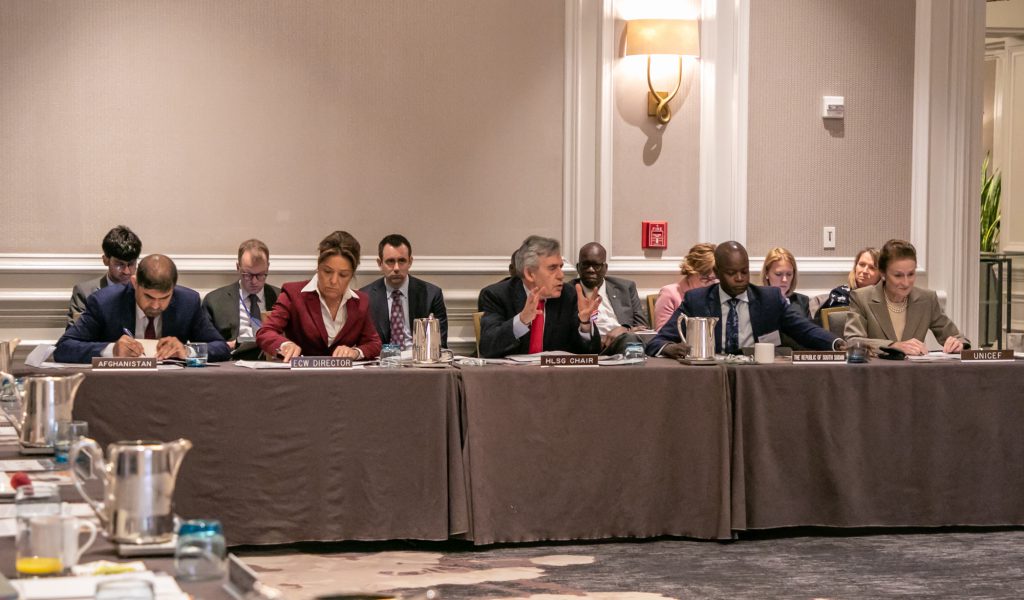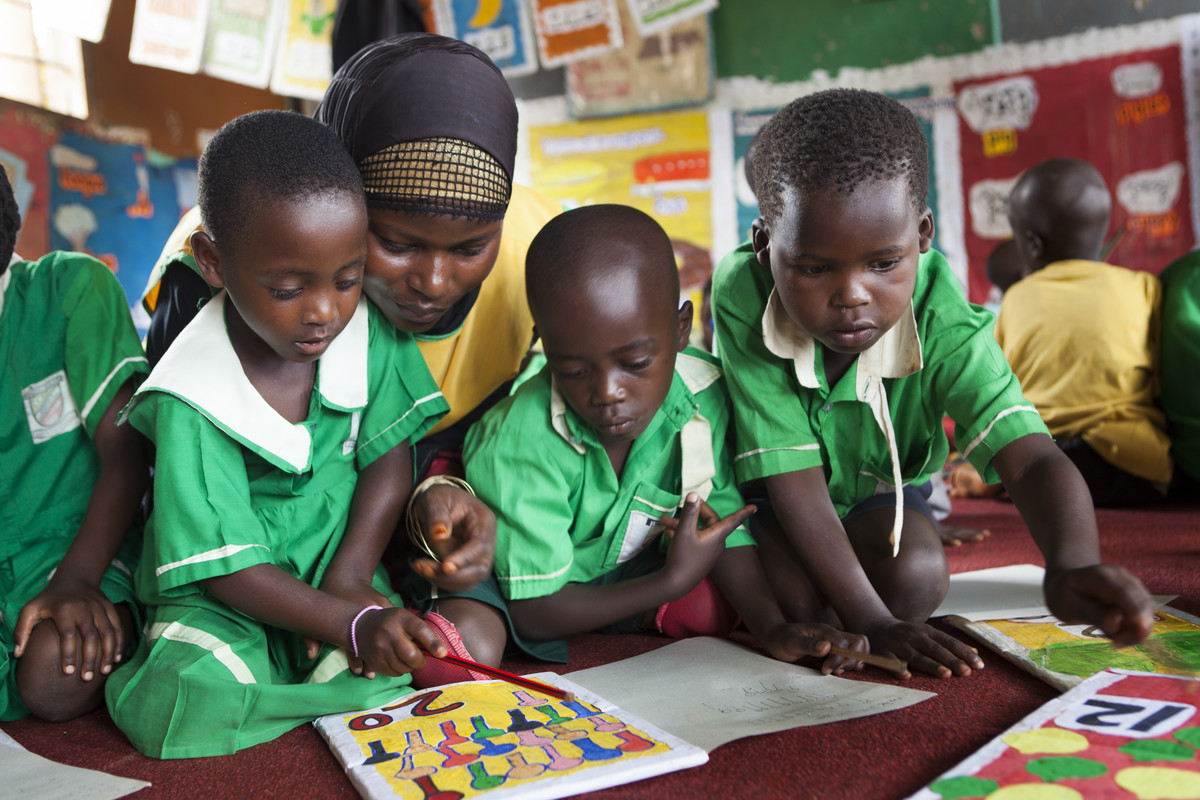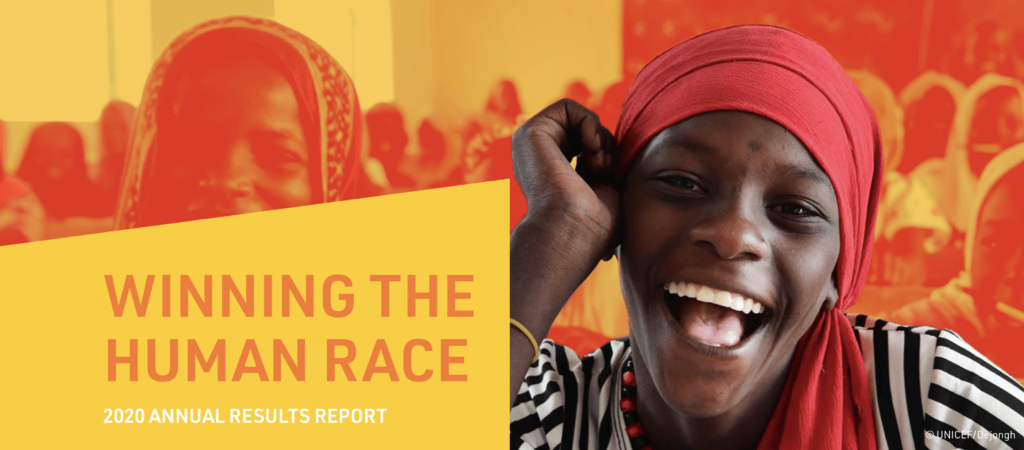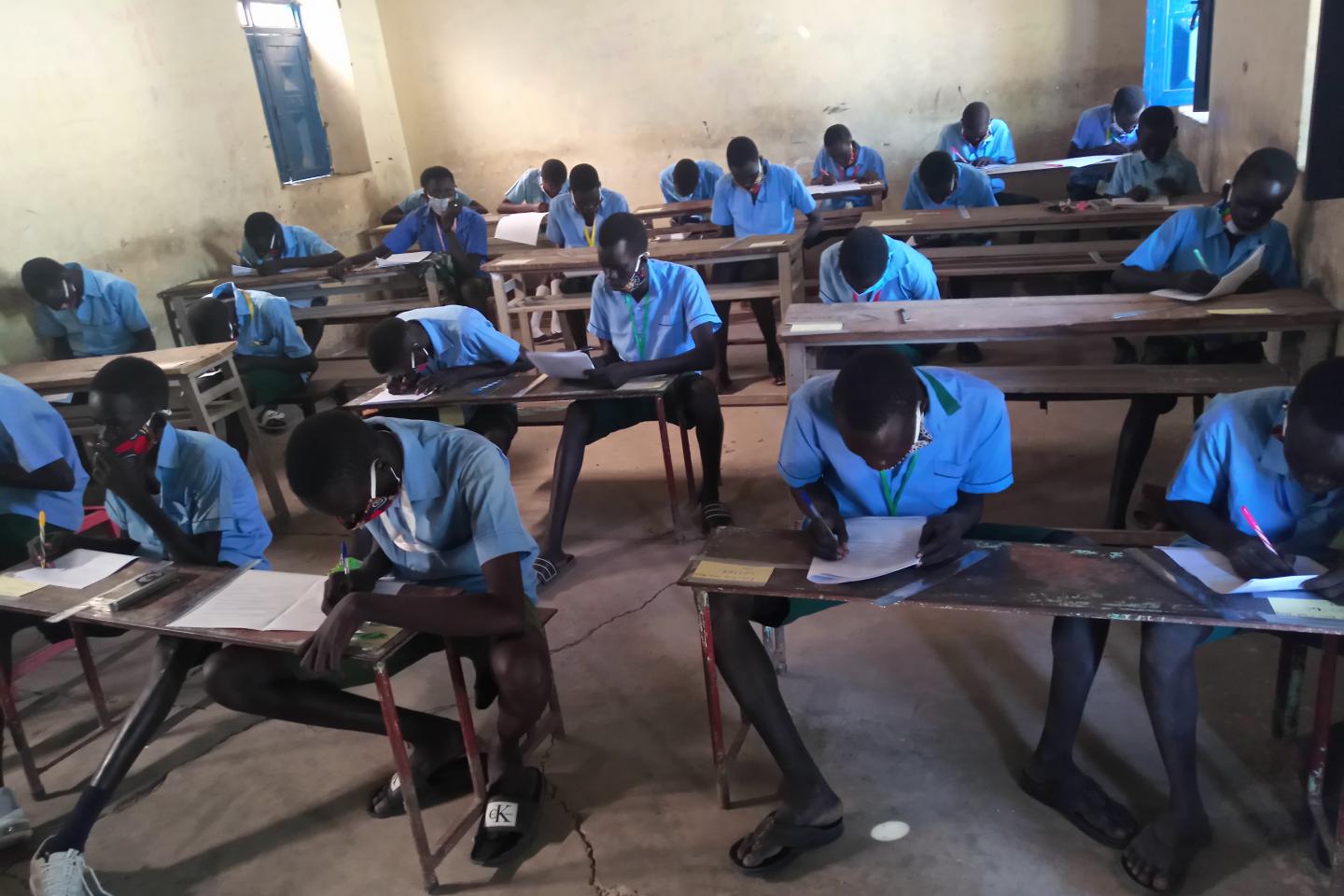Education Cannot Wait Reaches 1.3 Million Children in First Two Years of Operations

GLOBAL FUND’S HIGH-LEVEL STEERING GROUP LAUNCHES $1.8 BILLION CALL FOR ACTION TO REACH 9 MILLION CHILDREN IN CRISIS SETTINGS BY 2021
The High-Level Steering Group of Education Cannot Wait met on the margins of the World Bank-IMF Spring Meetings on 11 April in Washington, D.C. Ministerial and senior education stakeholders from government and donors, civil society, the private and philanthropic sector, and heads of UN Agencies convened to take stock of Education Cannot Wait’s progress after two years of operations.
With more than 1.3 million children and youth reached in 19 crisis-affected countries, the Fund’s High-Level Steering Group, chaired by the UN Special Envoy for Global Education, Rt Hon Gordon Brown, commended the Fund’s investment model and promising results, stressing that if “ Education Cannot Wait did not exist we would need to invent it.”
DELIVERING RESULTS
The Fund’s Director, Yasmine Sherif, presented Education Cannot Wait’s results to meeting participants, launching the Fund’s new Results Dashboard. As of 11 April, support for quality education is reaching close to 1 million children in primary, 300,000 in secondary and 70,000 in pre-primary. Overall, 51 per cent of the total children reached to date are girls.
Following a presentation by the Under-Secretary-General of the Office for Coordination of Humanitarian Affairs/Emergency Relief Coordinator, Mark Lowcock, participants at the biannual meeting discussed the instrumental role played by the Fund in advancing the humanitarian–development nexus in the education aid sector in order to achieve Sustainable Development Goal 4 on quality education for all. The meeting welcomed the Fund’s collaboration and partnerships, and its focus on results at the country-level. Participants stressed the collective need to catalyse additional and predictable financing, ensure an effective and coordinated response, build resilience of affected people and communities, and strengthen systems.
FRONTLINES PERSPECTIVES
The Ministers of Education from Afghanistan and South Sudan briefed the members of the High-Level Steering Group on the education sector in their respective countries and called for stronger support from multilateral and bilateral donors, including through Education Cannot Wait.
In his moving intervention, Afghanistan’s Minister of Education, Dr. Mohammad Mirwais Balkhi, highlighted the needs of Afghanistan’s 3.7 million out-of-school children (60 per cent of whom are girls), who have lost the opportunity and hope of an education due to the ongoing conflict and insecurity, forced displacement, social and economic constraints, and other factors. He also highlighted the progress driven by Education Cannot Wait’s First Emergency Response and the recently launched Multi-Year Resilience Programme in supporting the national community-based education strategy. Through these programme, the government and implementing partners are increasing access to education in hard-to–reach areas, recruiting women teachers and reducing the gender gap, building capacity, and providing safe and quality learning opportunities.
South Sudan’s Minister of General Education and Instruction, Deng Deng Hoc Yai, shared his personal journey as a refugee, and his new hope after the Civil War for peace, security and educational opportunities for the young people of South Sudan. According the Deng Deng Hoc Yai, more than 2.2 million children are out of school in South Sudan, the majority of whom are girls. He underscored that it is a pressing issue of gender equality and human rights to ensure children are not left behind, schools are built, text books are delivered, teachers are trained and the new national curriculum is rolled out to support better educational outcomes. Education Cannot Wait and its partners are currently supporting the development of a multi-year resilience programme in South Sudan.
The meeting also included important pledges and commitments for children and youth affected by Cyclone Idai. The United Kingdom’s Department of International Development (DFID) and Dubai Cares announced new commitments of US$5.2 million (4 million pounds) and US$2 million respectively to support a total US$14 million Education Cannot Wait allocation for emergency educational responses in the wake of the devastation from the cyclone in Malawi, Mozambique and Zimbabwe.
Global Citizen and the Will and Jada Smith Family Foundation also presented a six-figure check to Education Cannot Wait from the funds raised through Will Smith’s jump over the Grand Canyon.
With these pledges, the Fund has mobilized US$344 million since its inception and has surpassed annual resource mobilization goals since it was launched at the World Humanitarian Summit in 2016.
A CALL TO ACTION
The High-Level Steering Group approved Education Cannot Wait’s new Case for Investment, which calls on partners to “rise and support our efforts to mobilize US$1.8 billion in funding for education in crisis settings by 2021. Built through integrated partnerships, these catalytic investments will support quality education for close to 9 million children annually in some of the world’s worst humanitarian crises.”
The High-Level Steering Group members signalled their commitment to support Education Cannot Wait in advocating for resource mobilization with plans for a high-level pledging event at this year’s United Nations General Assembly in New York in September.
PHOTOS

For Press Inquiries:
Anouk Desgroseilliers:
adesgroseilliers@un-ecw.org
+1-917-640-6820
Kent Page:
kpage@unicef.org
+1-917-302-1735



